News
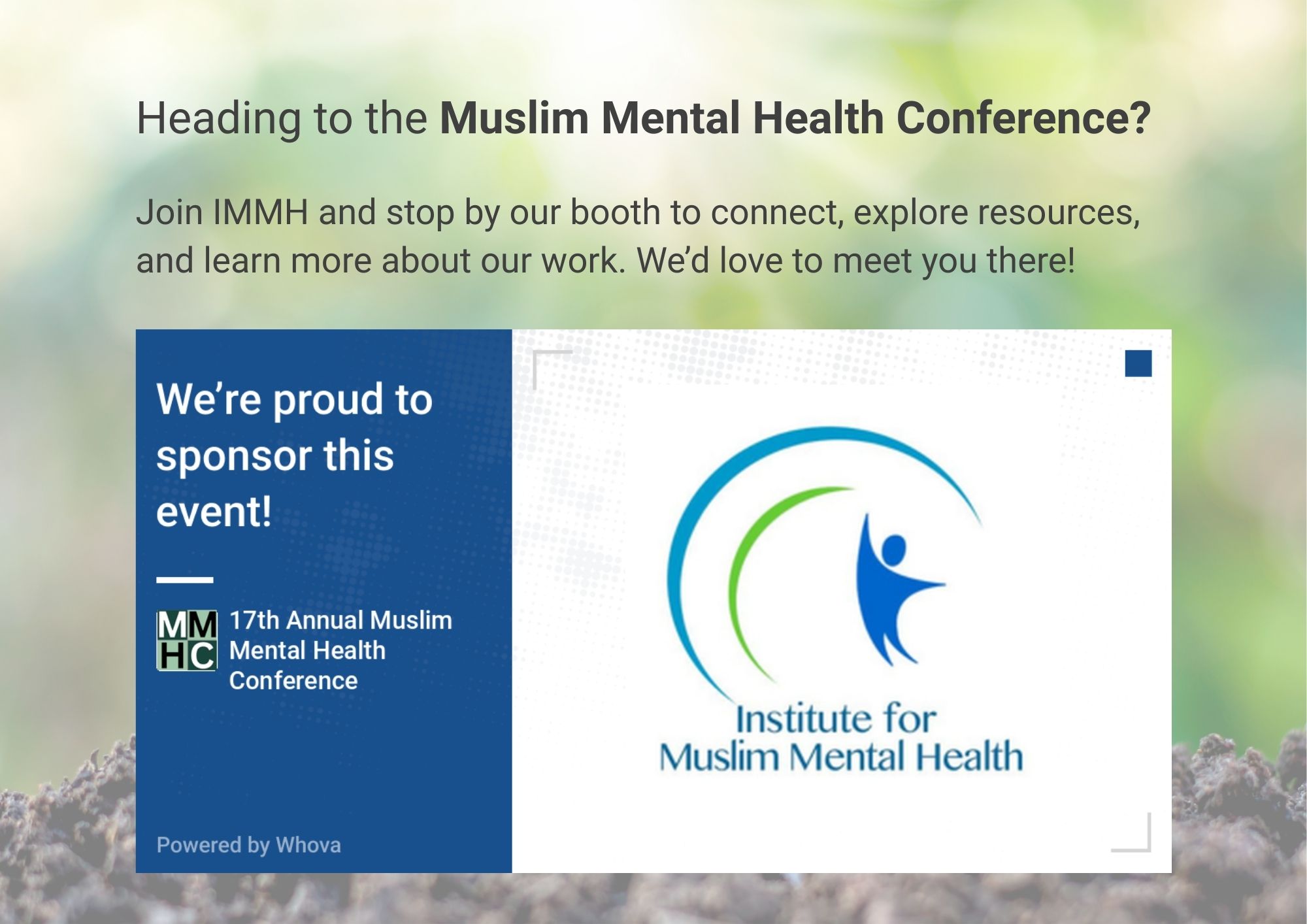
Become a Member
Select the membership according to your needs and enjoy the benefits.
Get Involved
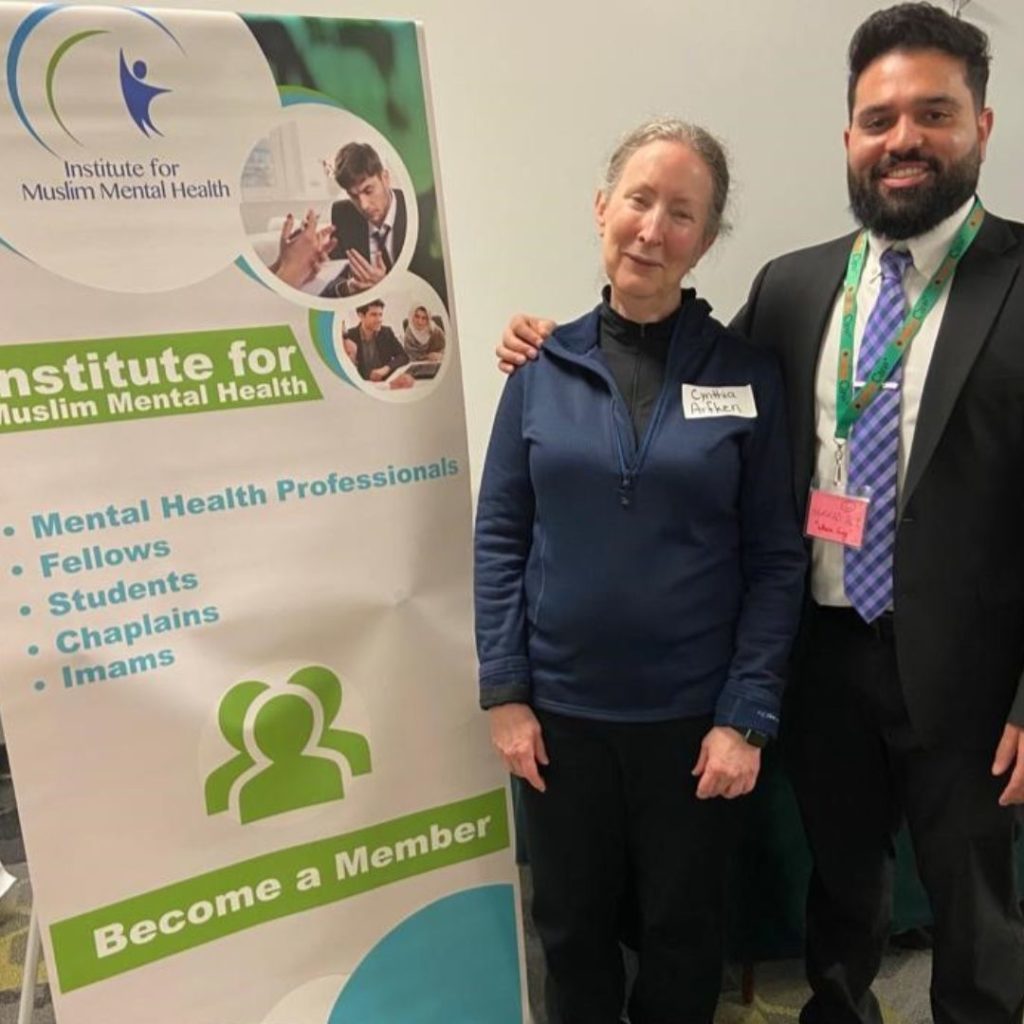
We need your help to achieve our vision.
There are several ways to get involved and support the work of the Institute for Muslim Mental Health.
Professionals - Become a Member
Become a Champion - Donate and Support our Institute's work
Volunteer & Intern - We have several projects and programs for volunteers and interns to assist with, reach out to us to learn more!
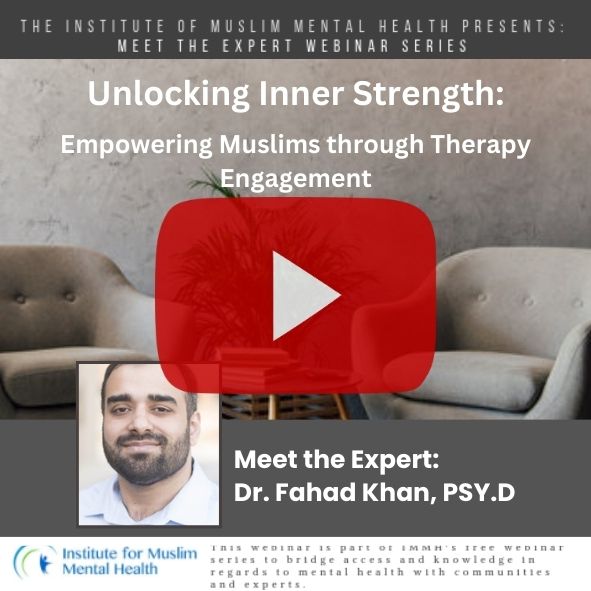
Unlocking Inner Strength: Empowering Muslims Through Therapy Engagement
Dr. Fahad Khan, a renowned expert guides us through the intricate interplay between spirituality and psychology.
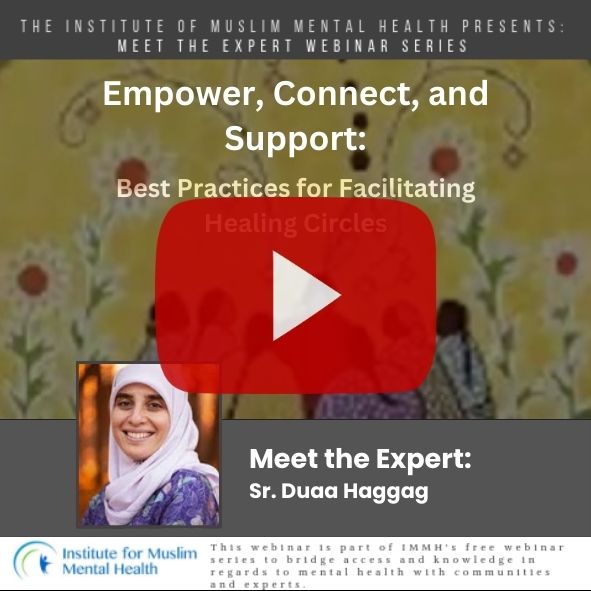
Empower, Connect, and Support: Best Practices for Facilitating Healing Circles
Sr. Duaa Haggag, a renowned expert in the field of healing circles, shares her insights on effective facilitation techniques.
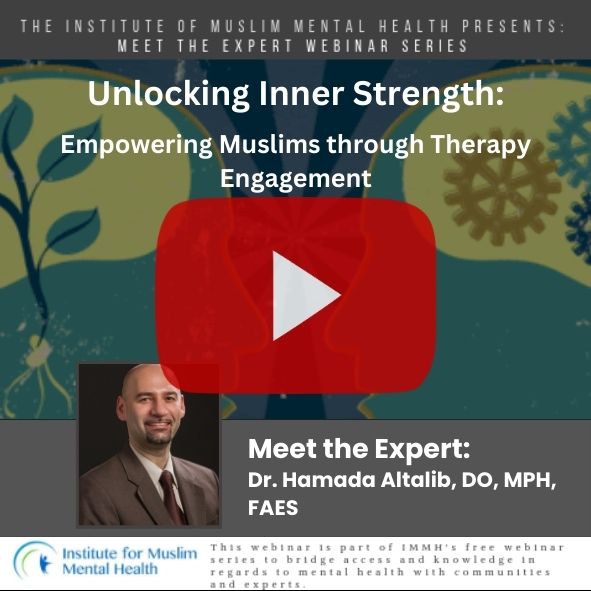
When Psychopathology Converts to Neurological Symptoms: A Guide for Therapists
Dr. Hamada Altalib provides a practical approach to caring for people with functional neurological disorders (FND).
Our Impact

Donate monthly even if you're not a mental health professional. Learn more about our projects.

